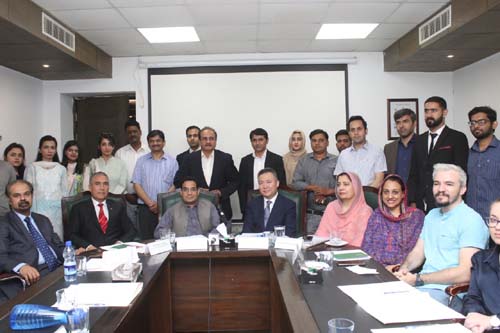Progress on Gwadar a linchpin to peace and prosperity: Speakers

Islamabad: Speakers at a seminar on Wednesday said development of Gwadar port and the progress on various projects will bring peace, prosperity, and connectivity to the region.
The seminar titled “Gwadar Port: Latest Developments and Prospects of Shared Prosperity” organized by the Center for BRI and China Studies – Institute of Peace and Diplomatic Studies in collaboration with Riphah Institute of Public Policy, Riphah International University.
The panelists were of the view that there are regional and strategic challenges, commitment from China and Pakistan is matchless, adding that it will bring change to the people across the region.
President IPDS Farhat Asif said hosting this vital conversation raised awareness and insight about recent developments on Gwadar- a crown jewel of CPEC and BRI.
Director Riphah Institute of Public Policy Dr. Rashid Aftab said the Institute of public policy supported the policy makers in developing informed policies.
Minister Counselor, Embassy of the People’s Republic of China Yang Nuo stated that the progress on the airport, connectivity, and energy projects was ongoing.
“Apart from these projects, a significant impact is on the lives of the locals through the clean drinking water plants, hospital, and vocational training institute”, he added.

Senator Sitara Ayaz highlighted her optimism toward peace and progress on Gwadar and said that Gwadar was progressing despite the challenges from the region.
She said despite challenges causing a delay in the progress, both Pakistan and China are committed to making development happen.
Associate Professor IR Department at COMSATS University Dr. Inayat Kalim said that vision, clear goals, strategy, and determination needed for the development and progress of the country to make the projects like Gwadar a reality.
A large number of students, faculty members, and diplomats participated in the event and later a book on “China-Pakistan Economic Corridor: Paradigm Shift Growth Model” was published by the Riphah Institute of Public Policy was also launched.





